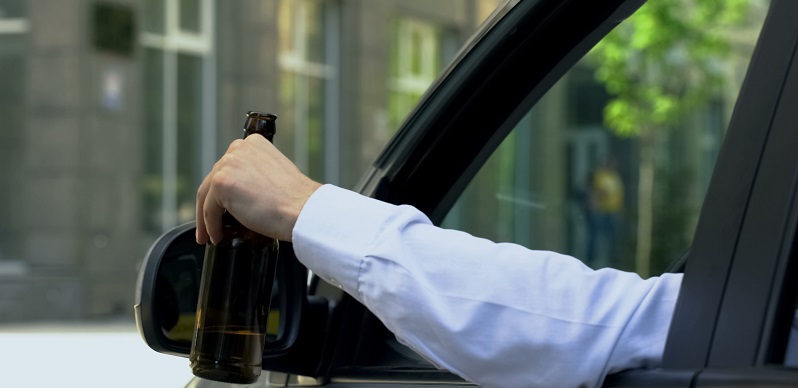Driving while intoxicated, or DWI is the most common crime that people are charged with in Texas. This indicates that you were driving while drunk if your mental or physical abilities were not functioning normally or if your blood alcohol level was 0.08 or more. You are accountable for the offense of drunk driving.
Driving under the influence, or DUI, is an offense taken very seriously in Texas. Specifically, it is illegal for anyone under 21 to operate a motor vehicle if they have consumed even a small amount of alcohol. It means that even if a person under 21 has not become intoxicated, they can still face charges if they are found to be driving after consuming alcohol.
So, if someone under the age of 21 drives after drinking and has any level of alcohol in their bloodstream, they can be punished with DUI even if they have not been drunk. Now, when they have reached an alcoholic state, they could potentially face charges for driving a vehicle while drunk.


The Difference Between A DWI And A DUI In Texas
In Texas, it is strictly prohibited for any individual to drive under the influence of alcohol or any other intoxicating substance. This includes anyone operating a commercial vehicle with a blood alcohol content level exceeding 0.04%.
Moreover, drivers under the age of 21 must not have any trace of alcohol in their systems when driving, regardless of the amount consumed. Furthermore, if an intoxicated driver is found to be in violation of this law, they may face harsh penalties such as hefty fines and/or jail time.
DWI In Texas
DWI is defined as driving a vehicle while intoxicated as per Penal Code Section 49.04:
- Having abnormal physical or mental abilities due to alcohol use
- Being affected physically or mentally as a result of alcohol intake or the use of any controlled substances, such as prescribed drugs, over-the-counter medicines, or illegal narcotics.
- Having a BAC of 0.08% or more for adults and 0.04% or more for people with commercial driver’s licenses.
If you are over 21 years of age and a law enforcement officer has reason to believe that you are operating a motor vehicle while under the above categories, then you can be charged with driving while intoxicated (DWI). The probable cause for a DWI case is determined through the evaluation of field sobriety tests or blood tests. Such tests measure the amount of alcohol in an individual’s system and assess their ability to drive safely.
Additionally, officers may utilize breathalyzers or urine samples as evidence in support of charges. All of this serves to ensure that those suspected of driving while impaired are held accountable and that the safety of individuals on the roadway is maintained.
Typically, a first DWI offense is considered a Class B misdemeanor. However, if the driver’s blood-alcohol content (BAC) is higher than 0.15%, they may face more severe penalties.
DUI In Texas
In Texas, people aged 16 or younger may be charged with DUI, especially if BAC is above 0.00%, as stated in Penal Code 106.041. So, even when only a trace amount is detected in their system. This is due to the strict zero-tolerance policy on drug and alcohol use among persons under the legal drinking age.
A single sip of alcohol that can be detected through a breathalyzer is considered driving while intoxicated and, as a result, can lead to a DUI charge. Furthermore, if an officer notices any odors of alcohol on the breath of a minor driver, they are also subject to arrest. It should be noted that this offense carries severe penalties both legally and socially. Thus, it is important for minors to understand the severity and the risks associated with drinking and driving in order to avoid these potentially devastating repercussions.
For adults facing a DWI charge in Texas, establishing a lack of normal use of physical or mental faculties is essential for proving the charge. However, minors can be arrested for driving under the influence without demonstrating any such impairment. In fact, the presence of even trace amounts of alcohol or drugs on their breath is enough to attract a DUI charge in Texas.
Furthermore, since minors are held to different standards than adults when it comes to drinking and driving, they may be held accountable even when they haven’t reached the legal blood alcohol limit as stipulated by state law.
Lists Of DWI Penalties
In addition to treatment programs, DWI offenses can lead to imprisonment, penalties, fines, and loss of license. As a first-time offender, you will end up getting the following:
Imprisonment
A first-time DUI offender can expect to spend a minimum of 72 hours in jail. Depending on how severe the offense is, the accompanying charge of an open container violation may result in up to 6 days of imprisonment. Furthermore, if convicted, a person can face up to 6 months in county jail.
Penalties
First-time offenders may be liable to pay fines of up to $2,000, depending on the specific circumstances and severity of the violation. Factors such as the offender’s criminal history, the nature of the offense committed, and any mitigating or aggravating circumstances can all play a role in determining the exact amount of fine imposed upon an individual.
Fees
If you have DWI charges, you may be required to pay the applicable fees ranging from $1,000 up to $2,000 per year for three years to maintain your driver’s license. These fees are paid directly to the Texas Department of Public Safety and will be determined based on the specific details of your case. It is important to note that these fees must be paid consistently for the three-year period in order for you to retain your driving privileges.
Driver’s License Suspension
In some cases, the license of a first-time offender may be suspended for a period ranging from three to twelve months. This is typically due to the detection of drugs or alcohol either through a breath or blood test, which can result in an immediate suspension of one’s license. Refusing to submit to testing can also lead to an extended suspension as well. However, it is possible to file for a hearing that could potentially lift the suspension.
Programs
Depending on the severity of the case, first-time offenders may be required to attend intensive programs or classes that are designed to assist in addressing the behaviors and issues associated with their drug/alcohol use. These DWI (Driving While Intoxicated) programs often involve a rigorous course of instruction, extensive fees, and long periods of time dedicated to recovery efforts. Additionally, these programs typically have stringent compliance requirements and often include additional assessments to evaluate progress and document long-term success.
In the event of a DWI offense, those convicted may be subjected to stiff penalties depending on the number of prior convictions. This can range from jail time and hefty fines to community service and probation. Furthermore, these punishments tend to increase in severity with every additional conviction. It means that someone with multiple convictions could end up spending more time in jail, paying larger fines, and/or having to perform more hours of community service than someone who has been convicted only once.
Lists Of DUI Penalties
In Texas, DUI sanctions are less harsh. They are severe for a minor, though. They consist of the following:
Imprisonment
For first-time offenders, incarceration is not a common consequence; however, if someone has committed the same crime more than once, they can expect to face time in jail as a result. In most cases, repeat offenders will receive stricter punishments than those who are new to committing the offense.
Penalties
Fines of up to $500 for first-time offenders can be prohibitively expensive, especially for young people who are earning a limited income from part-time work. This amount can be difficult for the offender’s guardian or parents to pay and may have lasting financial implications that far outweigh the severity of the offense.
Driver’s License Suspension
If convicted of a driving-related offense, a first-time offender can expect their license to be suspended for up to 60 days. This suspension is usually imposed through an administrative process rather than in court, meaning that it does not depend on the outcome of any criminal proceedings.
Programs
You may be required to undergo an alcohol or drug rehabilitation program in order to address the root of your substance abuse issue. Such a program would involve an evaluation of your current state as well as an individualized plan designed to help you stop relying on alcohol or drugs.
Community Service
In the state of Texas, DUI offenders may be required to complete community service. This typically consists of a range of 20 to 40 hours, while subsequent offenses often require up to 60 hours. Completion of this community service is mandatory to hold individuals accountable for their actions and ensure they are contributing positively to society after breaking the law.
Conclusion
If someone you know has been arrested for DUI or DWI in Texas, it is important to find experienced legal representation as soon as possible. Even though the consequences of DUI may seem less serious than those of DWI, they can still have a lasting impact on your life. A criminal record can cause difficulty in finding employment and housing opportunities, not to mention the emotional strain that comes with it.
A skilled DWI lawyer or DUI lawyer can help you protect your rights and work towards a better outcome for your case. With their expertise, they can advise you on the best course of action, from renegotiating charges and filing motions all the way to having your case dismissed altogether so that you can move forward without any blemish on your record.
So don’t hesitate – to act now and get a competent defense attorney.
(682) 204-4066 We cannot receive pictures via text so please send those via email or hand deliver to our office.
(682) 204-4066 No podemos recibir imágenes por mensaje de texto, así que envíelas por correo electrónico o entréguelas personalmente en nuestra oficina.






